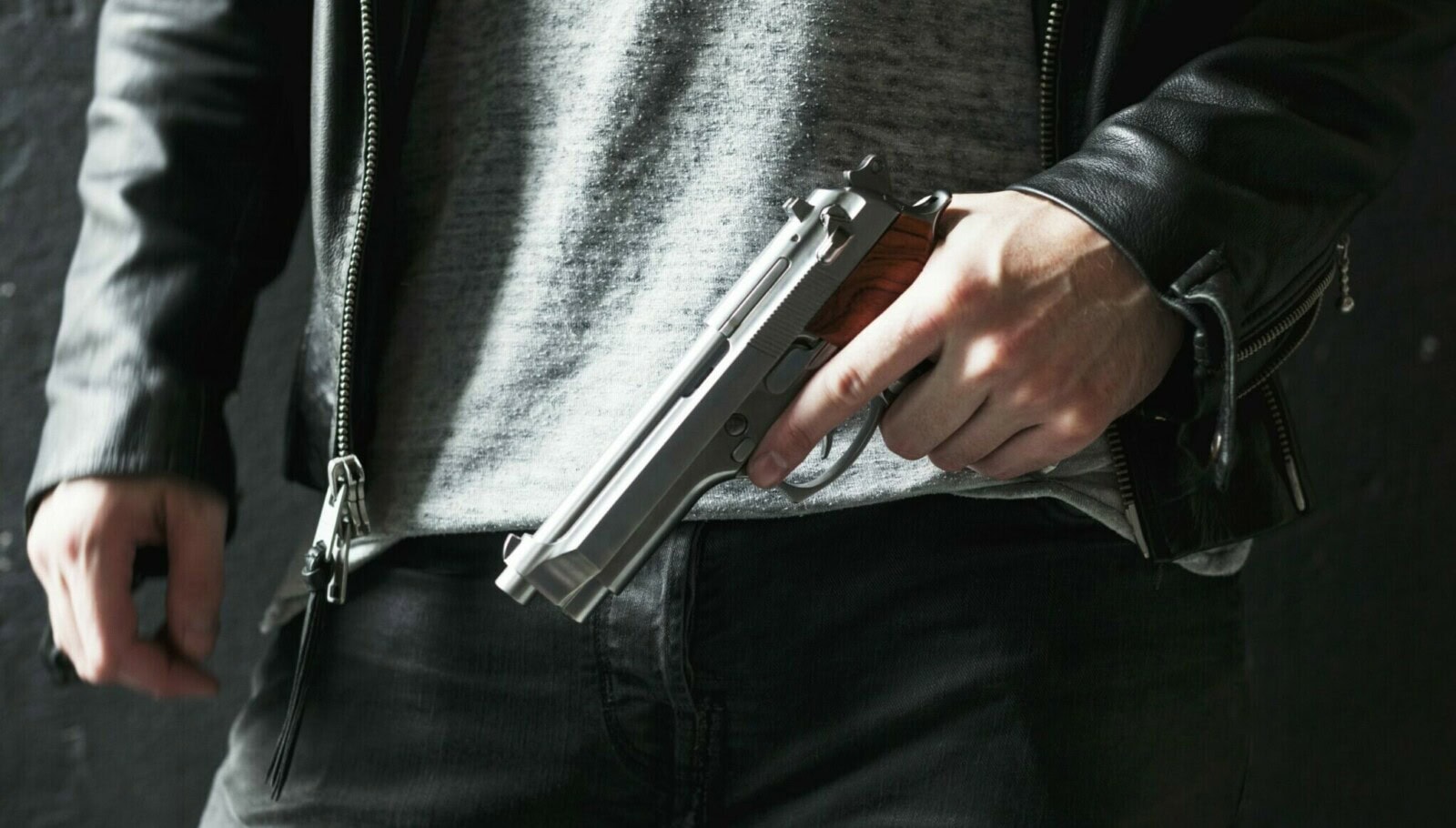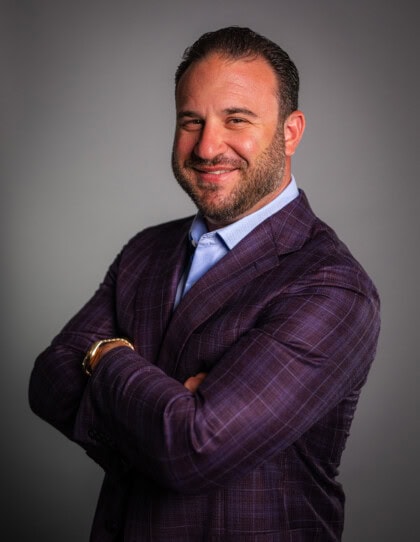Navigating firearm charges in Florida can be incredibly complex, with consequences varying significantly depending on how an offense is classified. Understanding the critical differences between misdemeanor and felony gun charges is essential, as this initial classification drastically alters potential sentencing, fines, and long-term repercussions.
Keep reading to learn more about how Florida law differentiates between misdemeanor and felony gun offenses, the severity of penalties, and how they can impact an individual's freedom and future.

Understanding Florida's Classification of Gun Offenses
Florida's legal system establishes a foundational framework for classifying criminal offenses, particularly when applied to firearm-related incidents. Recognizing whether a gun charge falls into the misdemeanor or felony category is paramount. This initial classification dictates the entire legal process and potential outcomes for an accused individual.
Defining Misdemeanor vs. Felony Charges
Under Florida law, misdemeanor charges represent less severe criminal offenses. These generally carry a maximum penalty of up to one year in jail and potential fines. Specifically, a first-degree misdemeanor is punishable by up to one year in jail, up to 12 months of probation, and a $1,000 fine, while a second-degree misdemeanor might result in up to 60 days in jail, six months of probation, and a $500 fine.
Felonies, conversely, are considerably more serious crimes that involve minimum conviction periods of at least one year or more. These offenses lead to state prison sentences, often for several years, and significantly higher fines. The legal system treats felony gun offenses with a much greater degree of severity due to their potential for harm and their impact on public safety.
The Impact of Charge Classification
The initial classification of a gun charge directly dictates the judicial path an individual will take. This includes the nature of court proceedings, the types of bail available, and the strategies that can be employed for defense. It also significantly influences the potential sentencing, ranging from county jail time for misdemeanors to lengthy state prison terms for felonies.
This classification is the primary determinant of a case's overall severity and the approach taken by prosecutors. It affects everything from plea bargaining opportunities to the immediate and long-term consequences for an individual, shaping their future opportunities and civil rights. The difference between a misdemeanor and a felony conviction can truly be life-altering, often requiring the guidance of an experienced criminal defense attorney.
Navigating the Arrest and Pre-Trial Phase
The immediate steps following an arrest for a firearm offense in Florida differ based on the charge's classification. For misdemeanors, the booking process may be quicker, often leading to a lower bond amount or release on one's own recognizance. Felony arrests, however, typically involve more extensive booking procedures and significantly higher bail amounts, which can sometimes be denied.
A first appearance or arraignment will be scheduled soon after arrest, where the charges are formally read, and bail conditions are set. Misdemeanor cases usually proceed more quickly through county courts, while felony cases are heard in circuit courts, involving more complex procedures and extensive investigations. Understanding these initial steps is essential for anyone facing gun charges.
Common Misdemeanor Firearm Charges in Florida
Several firearm-related offenses are typically classified as misdemeanors in Florida. These charges, while less severe than felonies, still carry serious legal repercussions. They often involve less aggravating circumstances or are tied to regulatory infractions rather than violent acts.
Examples of Misdemeanor Gun Offenses
Common scenarios that lead to misdemeanor firearm charges in Florida often involve issues related to carrying or securing a weapon. For example, carrying a concealed weapon without a valid permit is typically a first-degree misdemeanor. This offense is punishable by up to one year in jail, one year of probation, and fines up to $1,000.
Florida's permitless carry law, effective July 1, 2023, allows individuals to carry concealed firearms without a permit if they meet certain criteria, such as age and not being a prohibited person. However, rules for open carry are still restrictive, and proper storage in a vehicle remains crucial. Minor infractions concerning open carry laws, such as displaying a firearm inappropriately in public when not expressly prohibited, can still lead to charges.
Other misdemeanor gun offenses might involve situations where a firearm is not properly secured in a vehicle, violating state statutes for transport. Even juvenile gun possession, when it's a first offense, is classified as a first-degree misdemeanor. This type of charge often carries unique penalties, including mandatory 100 hours of community service and up to three days in a secure detention facility, emphasizing rehabilitation alongside legal consequences. These charges generally arise from failures to adhere to specific regulations rather than intentional criminal acts.
Penalties and Immediate Consequences for Misdemeanors
The typical penalties associated with misdemeanor gun charges in Florida are substantial. They can include significant fines, up to $1,000, and jail time that can last up to one year. Individuals might also face probation, mandatory firearm safety courses, and the potential loss of their concealed carry privileges.
Following an arrest for a misdemeanor firearm offense, the immediate legal process involves bond hearings and initial court appearances. While the penalties aren't as severe as felonies, a misdemeanor conviction can still result in a criminal record, impacting future opportunities and requiring compliance with court-ordered conditions. These charges should still be taken seriously, as they can have lasting effects on an individual's life.
Felony Gun Offenses: Navigating Florida's Stricter Laws
Felony gun offenses represent the more severe category of firearm charges in Florida, carrying significant legal consequences. These charges are scrutinized heavily by the courts and prosecutors. They reflect situations where firearms are used in the commission of more serious crimes, or when possession is prohibited due to a person's criminal history.
Identifying Felony Firearm Charges
Florida law identifies several types of felony gun offenses, each with distinct elements and severe penalties. One common example is possession of a firearm by a convicted felon, a charge for which more than 3,000 people are arrested annually in Florida. This particular offense is a second-degree felony, carrying a three-year minimum mandatory prison sentence that can extend up to fifteen years.
Another serious felony is carrying a concealed firearm without a permit in specific aggravating circumstances, such as during the commission of another felony. While a simple concealed carry violation without a permit might start as a misdemeanor, additional factors can elevate it to a third-degree felony. This can be punishable by up to five years in prison, five years of probation, and fines up to $5,000. Aggravated assault with a deadly weapon, or the discharge of a firearm during a felony, also fall into this severe category.
The classification of a gun offense as a felony often depends on elements like the individual's intent, their prior criminal history, the specific nature of the weapon involved, or the location where the offense occurred. Certain offenses involving stolen firearms or the use of a firearm to cause serious injury or death will also automatically elevate the charge to a felony. These factors demonstrate how a seemingly similar action can lead to vastly different legal outcomes, underscoring the need for experienced legal counsel.
Severe Penalties and Long-Term Repercussions for Felonies
Felony gun offenses in Florida come with much harsher penalties than misdemeanors. These can include extensive state prison sentences, often with mandatory minimums that can keep individuals incarcerated for many years. Fines range from $5,000 to $15,000, adding to the financial burden of a conviction.
Florida's "10-20-Life" law imposes particularly severe mandatory minimum sentences for certain firearm offenses. For instance, carrying a firearm during a felony can result in a 10-year mandatory sentence. Discharging a firearm during a felony means a 20-year sentence, and causing serious injury or death with a firearm can lead to 25 years to life in prison. Aggravated battery with a firearm, which involves intentional harm using a gun, is a first-degree felony punishable by up to 30 years or life in prison.
Beyond incarceration and fines, felony convictions lead to the permanent loss of civil rights, such as voting and the ability to own or possess firearms. Convicted felons found guilty of firearm possession can face sentences of up to 15 years in prison or probation with fines up to $10,000, with those in actual possession subject to a minimum sentence of three years. While there are pathways to restore voting rights and, in very rare cases, firearm rights after a felony conviction in Florida, the process is extremely difficult and often impossible, depending on the nature of the crime. This profound impact extends to future employment opportunities, housing applications, and professional licenses, permanently altering an individual's life.
The Critical Divide: How Misdemeanor and Felony Paths Diverge
The legal journeys for individuals facing misdemeanor versus felony gun charges diverge significantly, primarily due to the inherent differences in severity and potential outcomes. This critical divide influences every stage of the judicial process, from initial appearances to long-term societal reintegration.
Differences in Court Processes and Plea Bargaining
The judicial process for misdemeanor and felony cases in Florida differs considerably. Misdemeanor cases typically proceed through county courts, with quicker resolutions and less extensive discovery. Felony cases, conversely, are heard in circuit courts, involving more complex procedures, extensive investigations, and often lengthy pre-trial motions and hearings. Bail hearings are also vastly different, with felony bonds typically being much higher or even denied.
Plea negotiations also vary dramatically. For misdemeanors, plea agreements might involve community service, fines, or short probation periods, often without significant jail time. Felony cases, however, frequently involve plea bargaining around substantial prison sentences, including the potential for mandatory minimums. The options available in felony cases are often more limited, severe, and complex, requiring experienced legal counsel to navigate these challenges.
Impact on Future Opportunities and Rights
A felony conviction carries profound and lasting impacts that far outweigh those of a misdemeanor. Felons face permanent disenfranchisement, meaning they lose the right to vote. They also endure professional licensing restrictions, making it challenging to pursue or maintain certain careers. Securing employment and housing becomes significantly more difficult, and a strong social stigma often accompanies a felony record. Felony convictions may also prevent one from ever buying a gun.
In contrast, while a misdemeanor can still affect an individual's record, its effects are generally less pervasive. Misdemeanors carry no life-long restrictions on fundamental civil rights like voting or firearm ownership. The process for expungement or sealing of misdemeanor records may also be more accessible, offering a better chance at a fresh start. Although a misdemeanor can still impact job prospects and public perception, its long-term consequences are generally not as debilitating or permanent as those resulting from a felony.
Defending Against Florida Firearm Charges
Navigating firearm charges in Florida, whether misdemeanor or felony, requires a robust defense strategy tailored to the specific facts of each case. The approach to defense will depend heavily on the unique circumstances and the classification of the charge.
Common Defense Strategies
Various general defense strategies can be employed against gun charges in Florida. A defense attorney might challenge the legality of the initial stop or search that led to the discovery of the firearm, arguing that evidence was obtained unconstitutionally. Asserting self-defense claims is another common strategy, particularly in cases involving the discharge or display of a firearm. This defense hinges on demonstrating that the use of the firearm was a reasonable response to an imminent threat.
In some instances, demonstrating mistaken identity or arguing that the firearm belonged to another individual could also be relevant. The application and potential success of these defenses vary significantly depending on the specific elements of the alleged crime and whether it's classified as a misdemeanor or a felony. A skilled criminal defense lawyer can help determine the best strategy.
Actual vs. Constructive Possession
A critical defense in firearm cases often involves distinguishing between actual and constructive possession. Actual possession means the firearm is physically on your person or within your immediate reach. For instance, a gun carried in a holster or held in your hand constitutes actual possession.
Constructive possession, however, refers to a situation where you don't physically possess the firearm but have knowledge of its presence and the ability to exercise dominion and control over it. An example would be a firearm found in your vehicle's glove compartment or under the seat, even if it's not directly on your person. Proving a lack of knowledge or ability to control the weapon can be a viable defense against constructive possession charges, highlighting the complexities of Florida's constructive possession laws.
The Importance of Evidence and Legal Procedure
A strong defense against firearm charges relies heavily on meticulous evidence gathering. This includes reviewing police reports, witness statements, and forensic evidence to identify any inconsistencies or weaknesses in the prosecution's case. A thorough understanding of complex legal procedures is also essential to ensure all deadlines are met and rights are protected.
Strict adherence to constitutional rights is paramount; any procedural missteps or violations by law enforcement, such as an illegal search or seizure, can lead to the suppression of crucial evidence. Such suppression can significantly weaken the prosecution's case or even result in the dismissal of charges. This highlights the technical expertise required from an experienced criminal defense attorney to effectively challenge the charges.
Facing Firearm Charges in Florida? Protect Your Future Today.
Whether you're facing a misdemeanor or a felony gun offense, the stakes are incredibly high. The complexities of Florida law demand a robust and informed legal strategy. A conviction for any firearm-related charge can have profound and lasting effects on your freedom, reputation, and future opportunities, making prompt and decisive legal action essential.
If you or a loved one has been charged with a firearm offense in Florida, don't face the daunting legal system alone. The experienced criminal defense attorneys at Weinstein Legal Team are prepared to provide aggressive representation and fight tirelessly to protect your rights, leveraging our deep understanding of Florida's gun laws. Contact us today for a confidential consultation to discuss your specific case and explore your most effective defense options.


